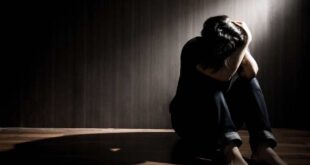Many sources of anxiety in the later adult years are mediated by genderrelated experiences. Survival is itself correlated with sex/gender: the differential survival gap favoring females increases with advancing adult age (Gee, 1989).
This means that elderly females are more likely to face anxieties related to (a) caring for a terminally ill spouse, (b) grieving his death, and (c) adjusting to postmarital life over an extended period of time.
Although fewer elderly men survive their wives, those who do tend to have more difficulty in sharing their grief and seeking social support (Stroebe & Stroebe, 1990).
Gender is also a significant factor in many other types of vulnerability to anxiety in the later adult years. Elderly women tend to have fewer economic resources than men (Torres-Gil, 1992) and, as a result, have more reason to be concerned about basics such as food, transportation, home repairs, heating and telephone bills.
In turn, a precarious financial situation is likely to arouse anxieties about losing one’s own home and therefore also losing the sense of independence that is so highly valued in our society.
Major gender differences also exist with respect to the sense of usefulness and social integration. Retirement from full-time, long-term occupational activity is still predominantly a challenge for men (although an indirect challenge, for their wives).
It is more often the man who is faced with anxiety-arousing questions about personal identity, continued usefulness, and related issues.
The much higher suicide rate for elderly men vis a vis women is seen by some researchers as an outcome of the male’s greater loss of identity and perceived self-worth upon retirement (Canetto, 1992). Suicide and other self destructive acts (e.g., drinking binges) may be panic responses to the perceived sudden loss of status and value.
On the other hand, women are likely to face job discrimination at an even earlier age than men, especially for positions that are above the entry level or minimum wage category (Christy, 1990). Women tend to be penalized both by the “glass ceiling” obstacle to advancement in midcareer and by societal attitudes that consider females to lose their value more rapidly than men after young adulthood.
Aging, then, seems to present somewhat different anxiety-arousing signals in the occupational realm according to one’s gender.
Elderly women are more likely than men to experience a sense of personal powerlessness (Degelman, Owens, Reynolds, & Riggs, 1991). Therefore, aging females may become relatively more vulnerable to anxiety that is related to lack of efficacy and control.
Aging tends to challenge the sense of empowerment for both men and women, but gender-linked differences could be as significant as the shared age-related effects.
 Therapy for anxiety Therapy for anxiety
Therapy for anxiety Therapy for anxiety



